I’m so incredibly thankful for friends who find interesting and fun things to do while we’re traveling. As you have seen from previous posts, Jaye is one of those people. She loves to explore, and as a Chinese, she has a lot of the historical and cultural background of places that I missed since I didn’t grow up in China. We had one more morning in Chengdu before heading into the mountains. I thought resting might be a good idea, but Jaye found a house/museum that she wanted to see, and I couldn’t resist tagging along. We could rest on the train, right?
I’m so glad I joined for the 杜甫 (Du Fu) House Adventure. The area was beautiful, and even though it was a bit expensive to get into it (about 50 kuai; $7—actually now that I do the conversion, that’s quite cheap!), it was definitely worth it!
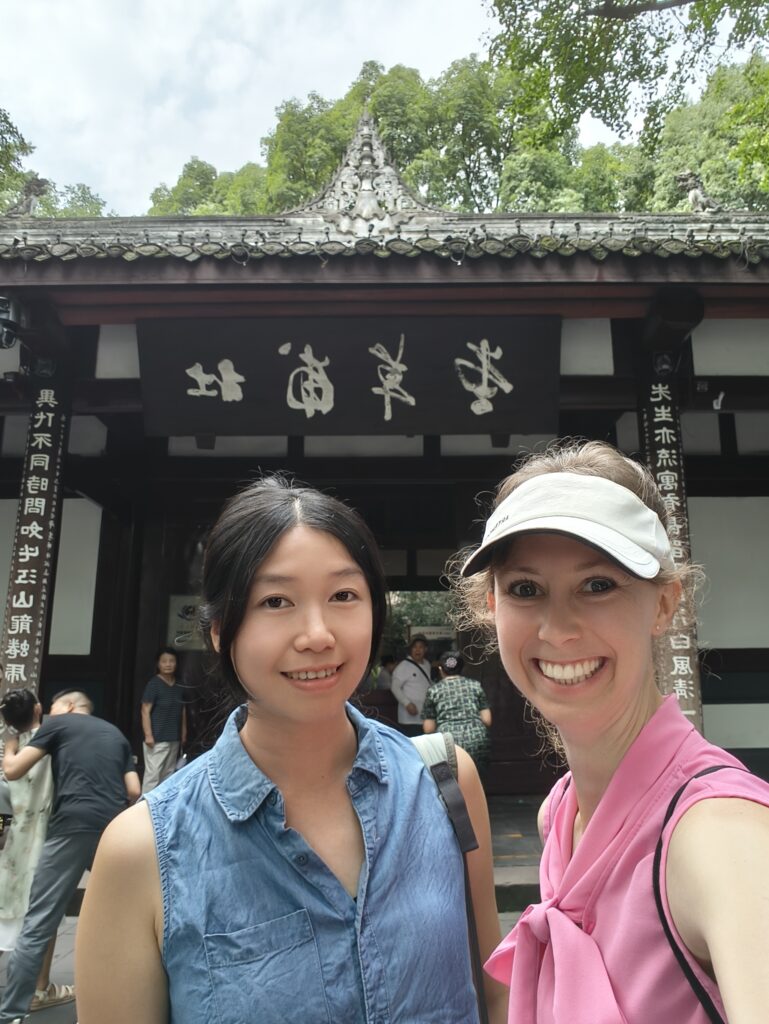
The site was set up like a collection of little houses with lots of gardens around. Each of the houses had different displays relating to Du Fu’s life, his poetry, his friendship with Li Bai (another poet), and artwork illustrating the poetry.
The gardens were also beautiful. Just being there, I felt like I could be a poet. Something about nature and pagodas and little ponds with waterfalls and flowers everywhere in courtyards surrounded by calligraphy made me feel creative and inspired. I wanted to linger and write. I wanted to enjoy the beauty of the bamboo and the bonsai trees and write poetry about nature. But the sticky heat of summer was starting to creep into the beauty of nature, and with hundreds of other people in the area, it was hard to find a quiet place to sit and be creative. We also had a train to catch and the area had lots of interesting things to see. So I imagined a day in the future when I returned to Chengdu with hours of spare time on my hands in the spring or fall when the weather was bearable and the kids were all in school, and I could sit in the courtyard surrounded by elderly people chatting leisurely, and then I would write poetry. Good intentions are easier in the future, right?
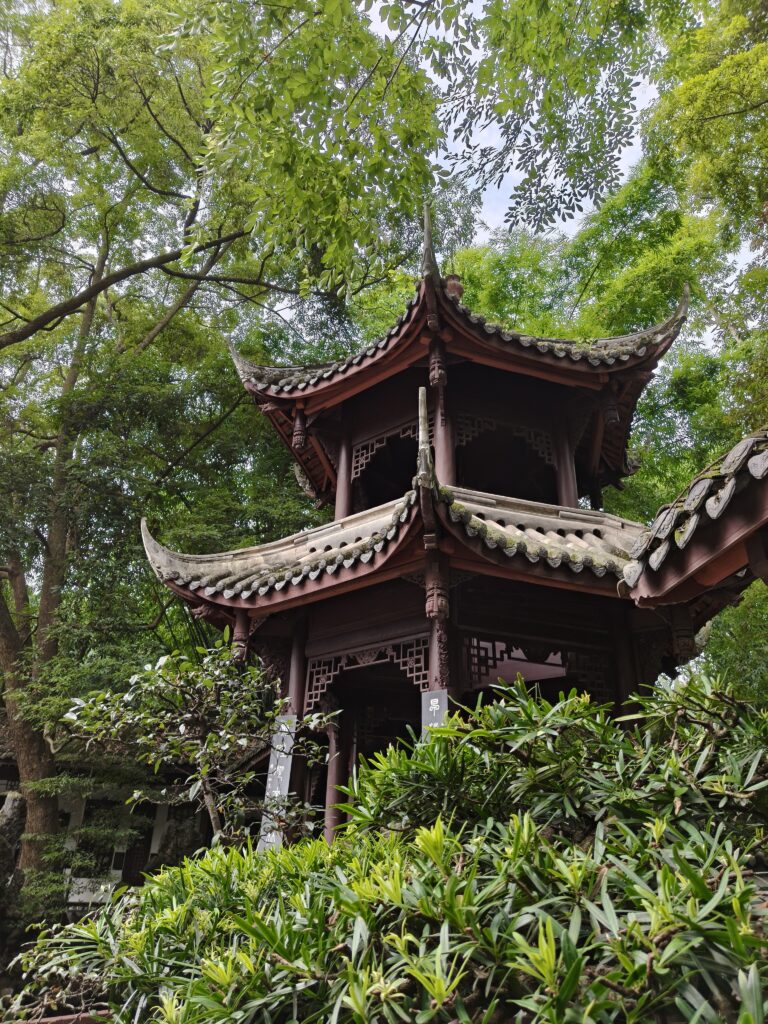
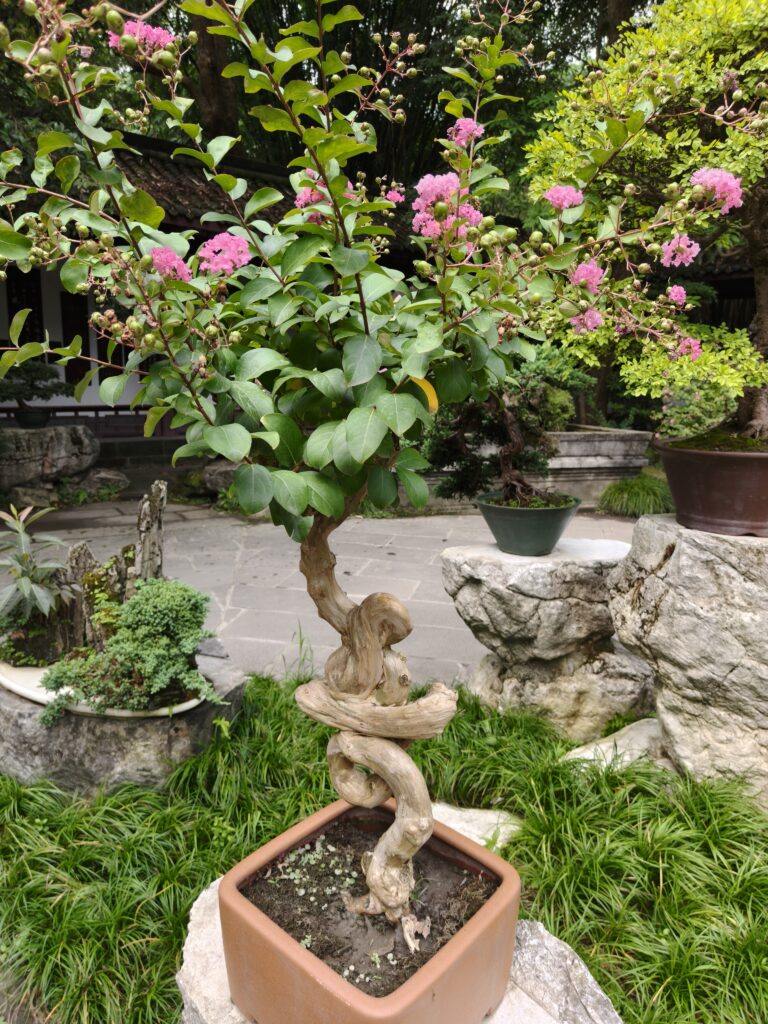
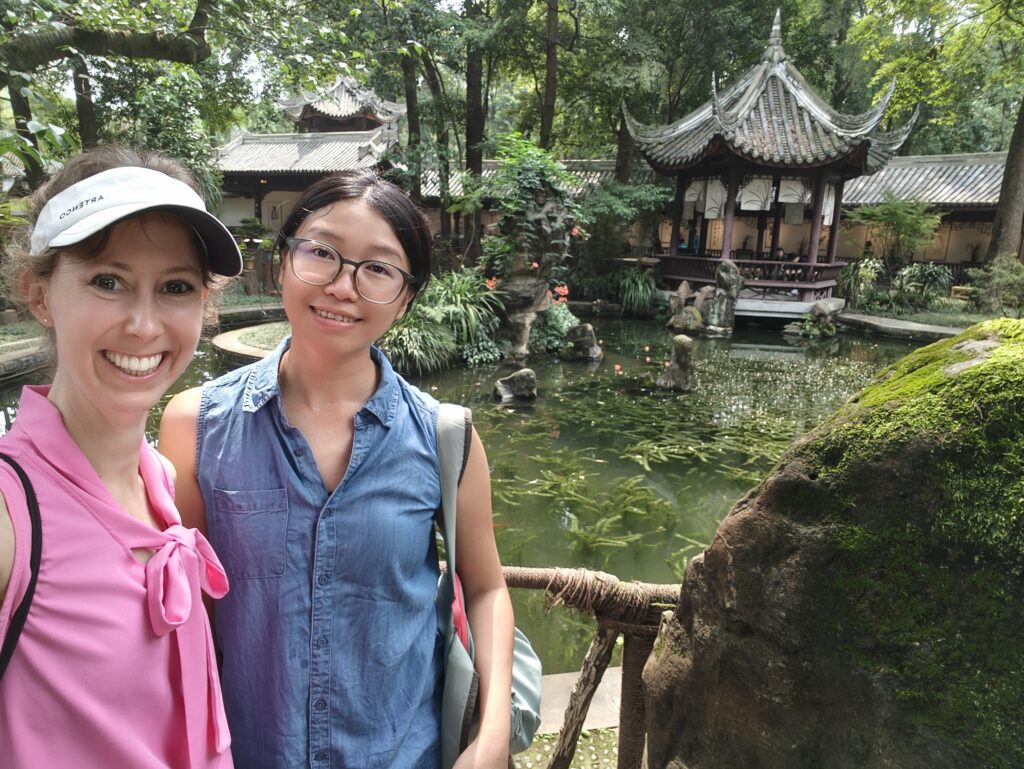
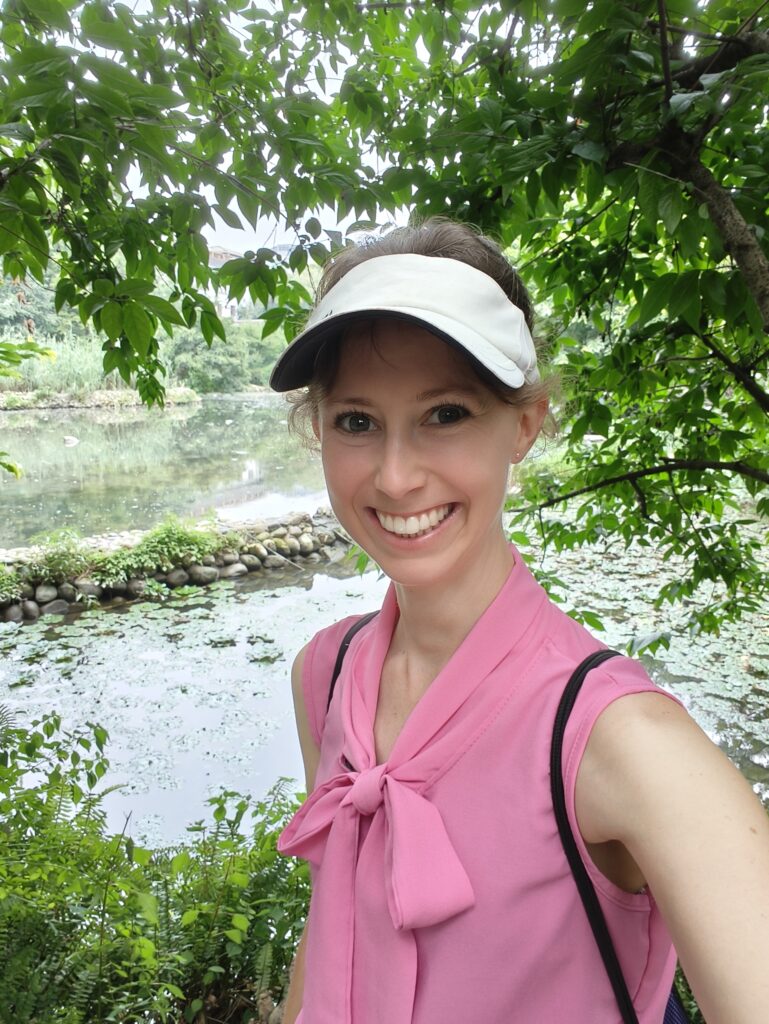
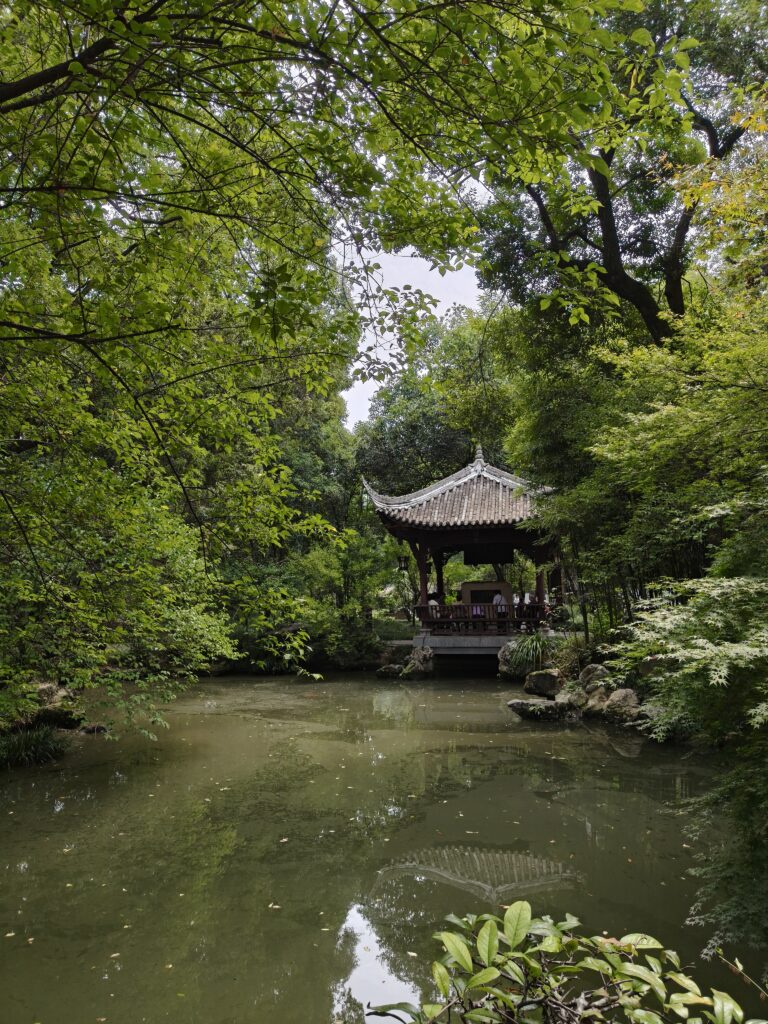
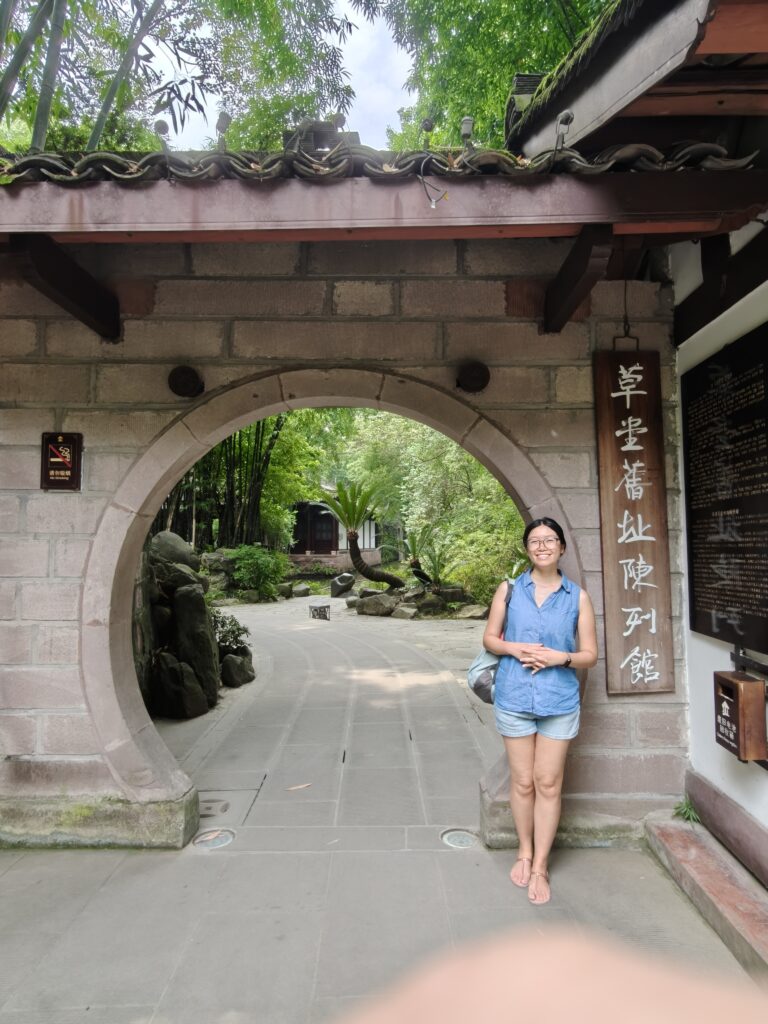
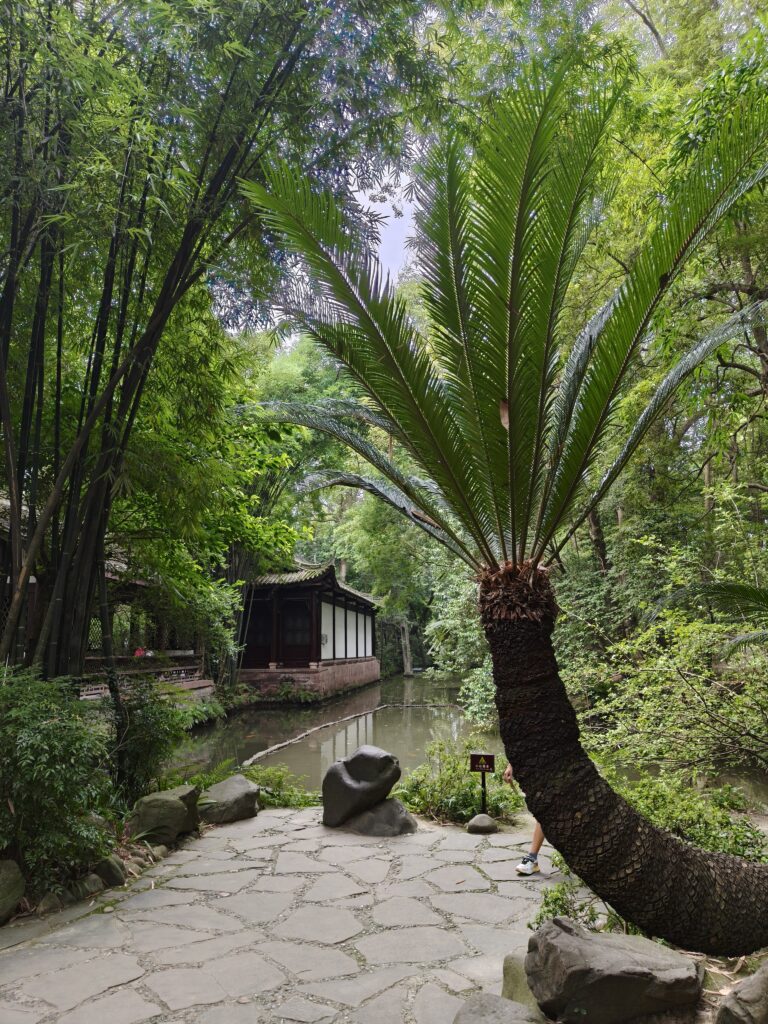
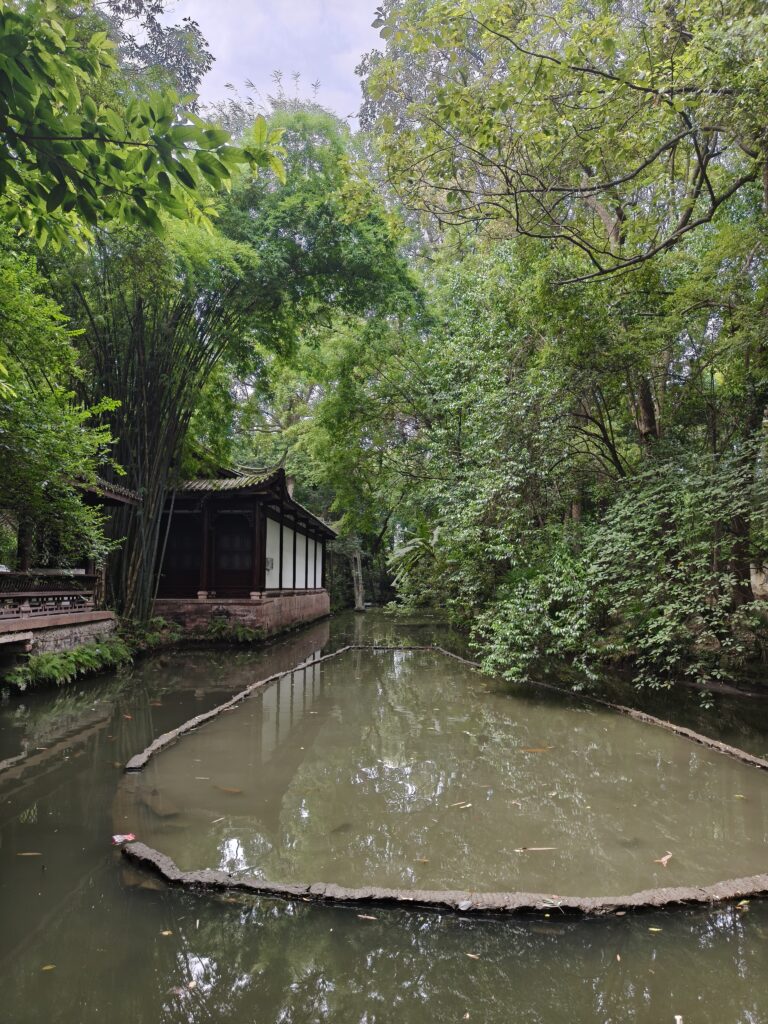
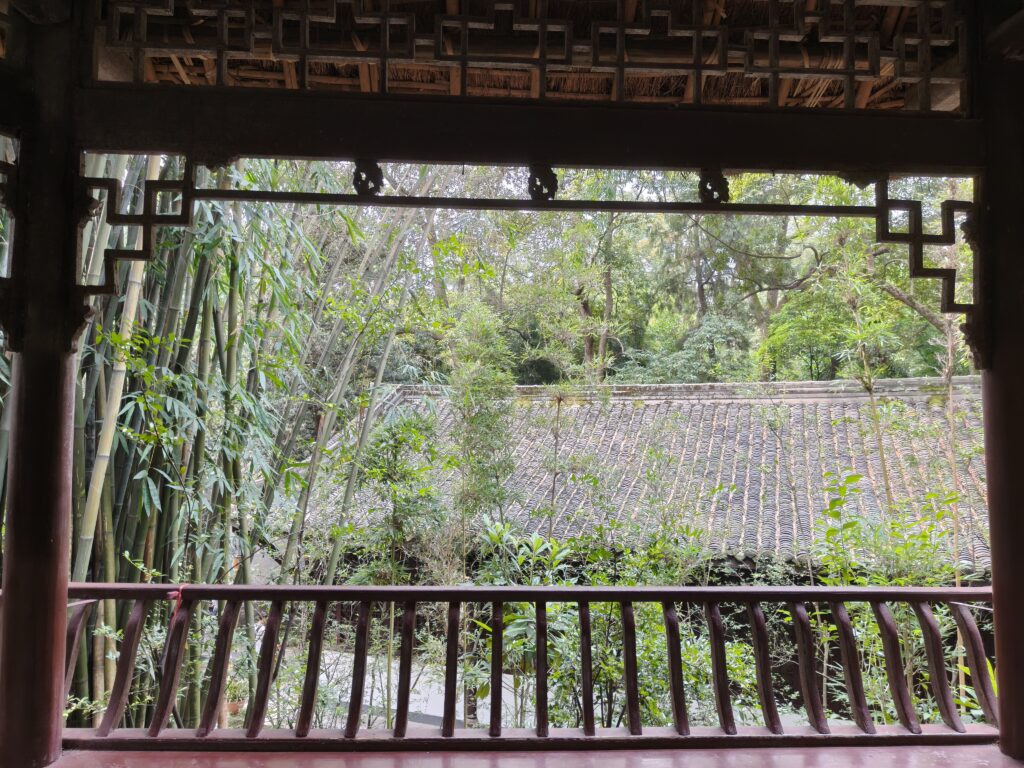
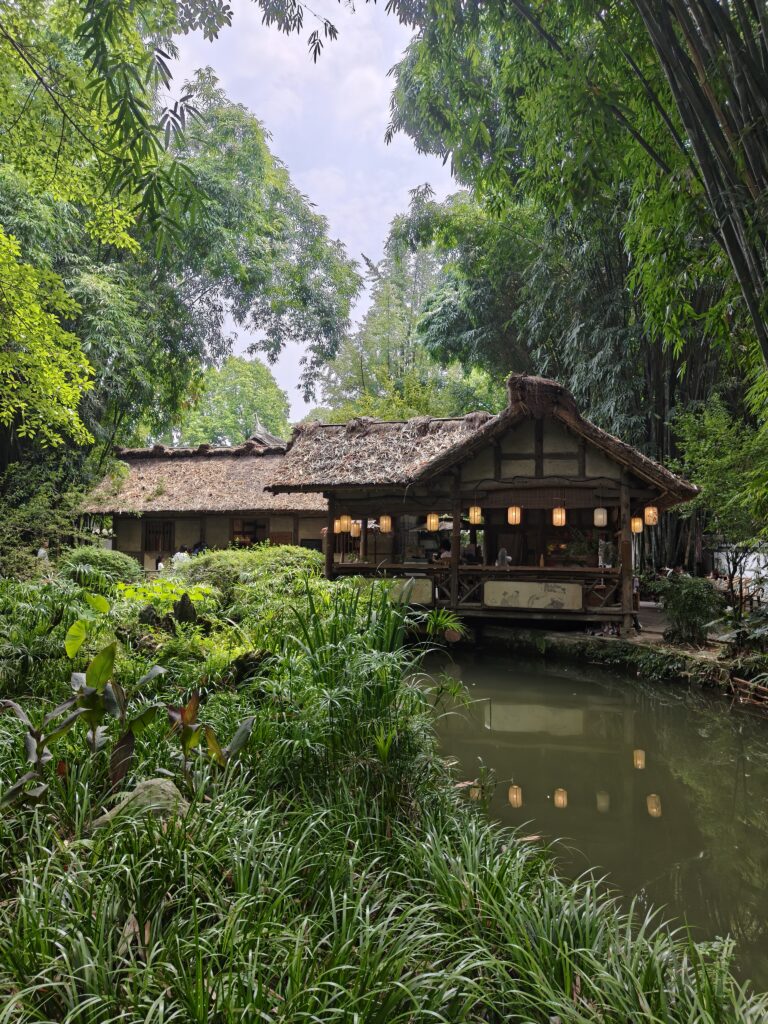
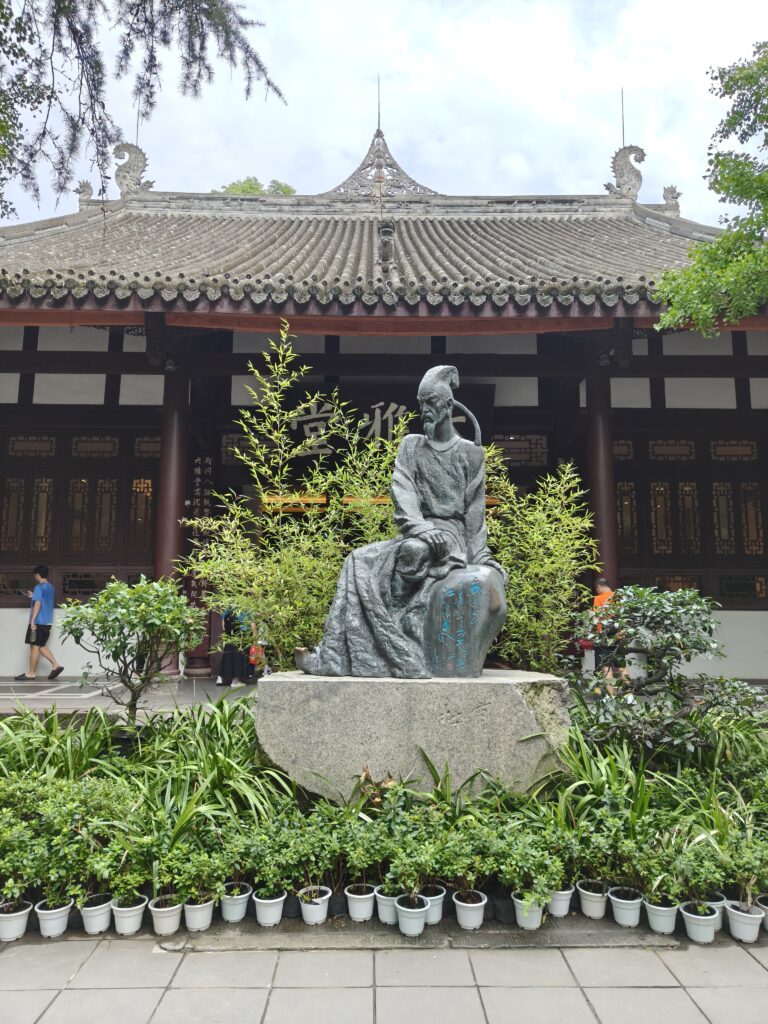

Before we leave this delightful place, I wanted to share a bit about Du Fu and his poetry. In one building, Jaye and I learned about Du Fu’s life (712-770). Almost all of the displays included good English translations so I could easily enjoy what I was looking at and learn some things as well. There was a huge mural on one wall that showed scenes from Du Fu’s life, and I enjoyed looking at some of those and seeing the illustrations of his life. At one point near the beginning of Du Fu’s career, he took a long journey all through China. According to the Britannica website about Du Fu, he took this trip because he failed the imperial examination. I think that’s so interesting. Examinations are really important in China because they ensure a stable and fairly comfortable life. But if Du Fu had passed the examination, would he have gone on to have the experiences and the struggles that enabled him to write such incredible poetry?
Most of us want a stable and secure life. I know that I do. I want to be comfortable and safe, and I would prefer to avoid all hard times. But I know that the challenges and the difficulties in my life have helped to shape and grow me much more than the times when I have been safe and comfortable. I wouldn’t wish difficulties on anyone (including myself), but when they do come, rather than running from them, I want to face them with hope, knowing that God will do something great in them, and He can work through the worst situations.
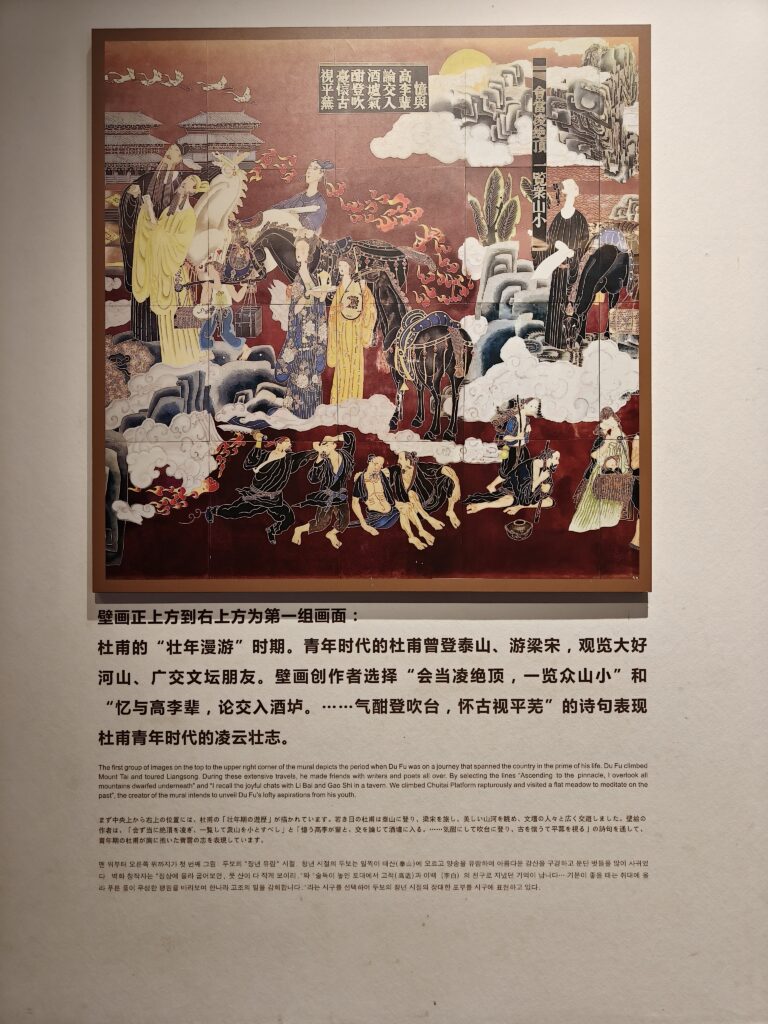
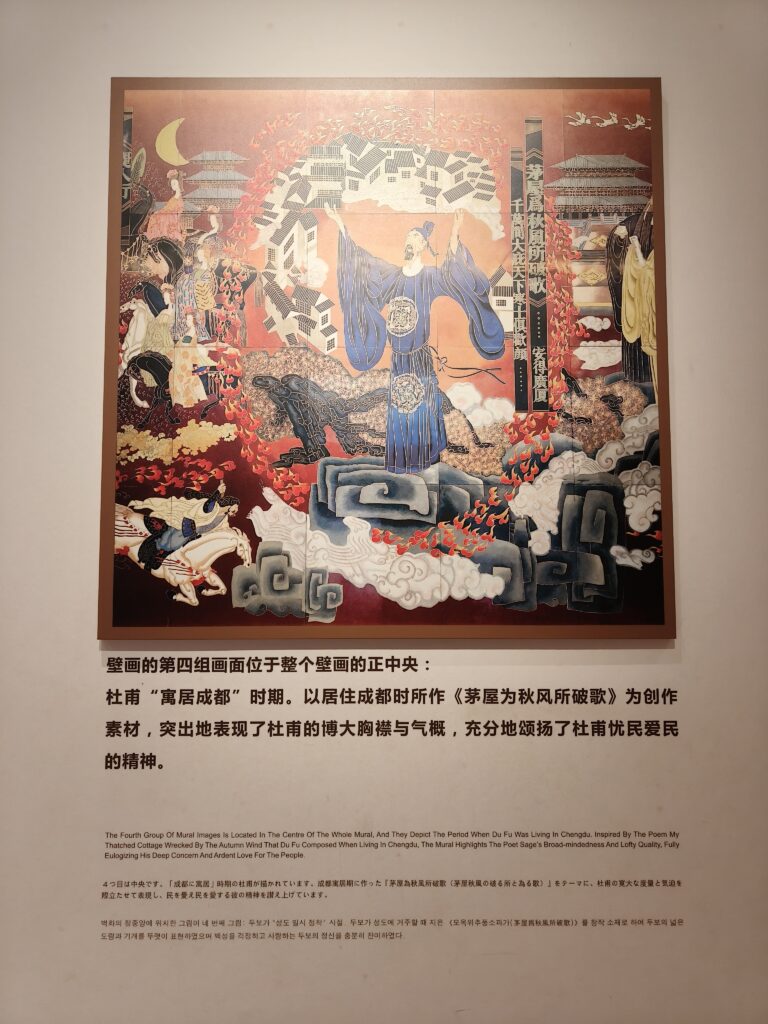
Anyway, Du Fu did lots of traveling (that’s inspiring also since I do love to travel). On his travels, he met lots of people including Li Bai. Li Bai and Du Fu influenced each other quite a lot. I’ve noticed that great poets and writers and musicians rarely come alone. I also think of Tolkien and Lewis. Emerson and Thoreau are another example. This reminds me to look at the people surrounding me. Are they people who are building me up and helping me in my goals and aspirations? I am thankful that I have many people around me who encourage me in my writing goals. I’m thankful for friends who challenge and inspire and push me to be better. I wouldn’t be the writer I am without these people.
I also really enjoyed a couple of artistic interpretations of Li Bai and Du Fu’s poetry.
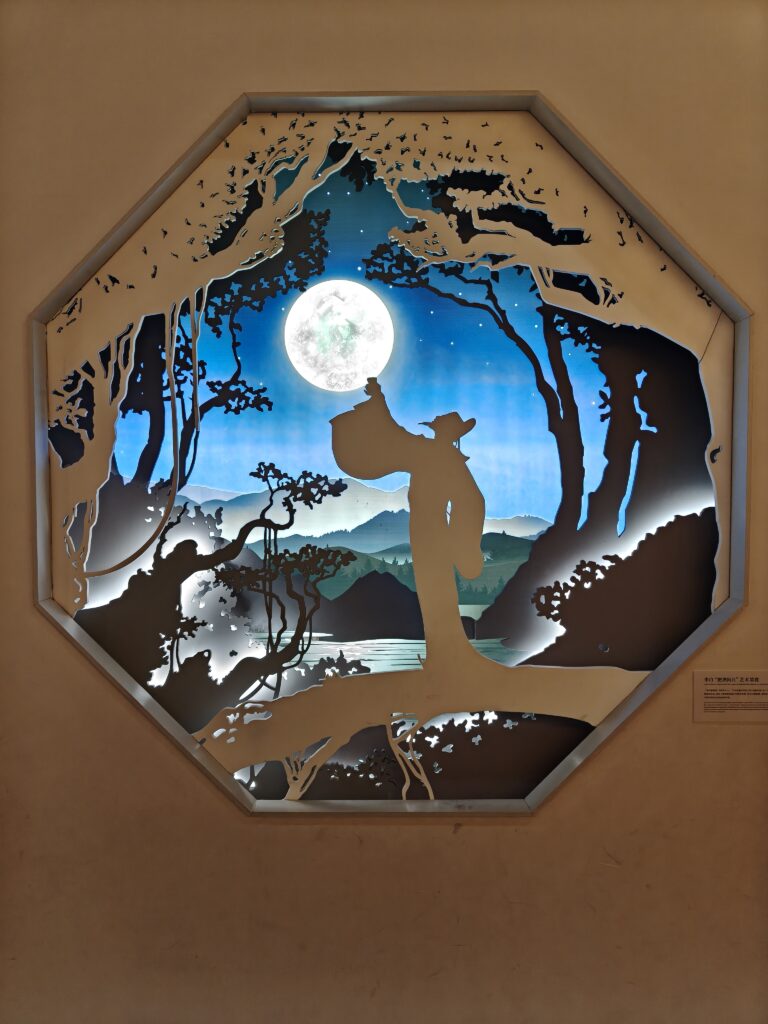
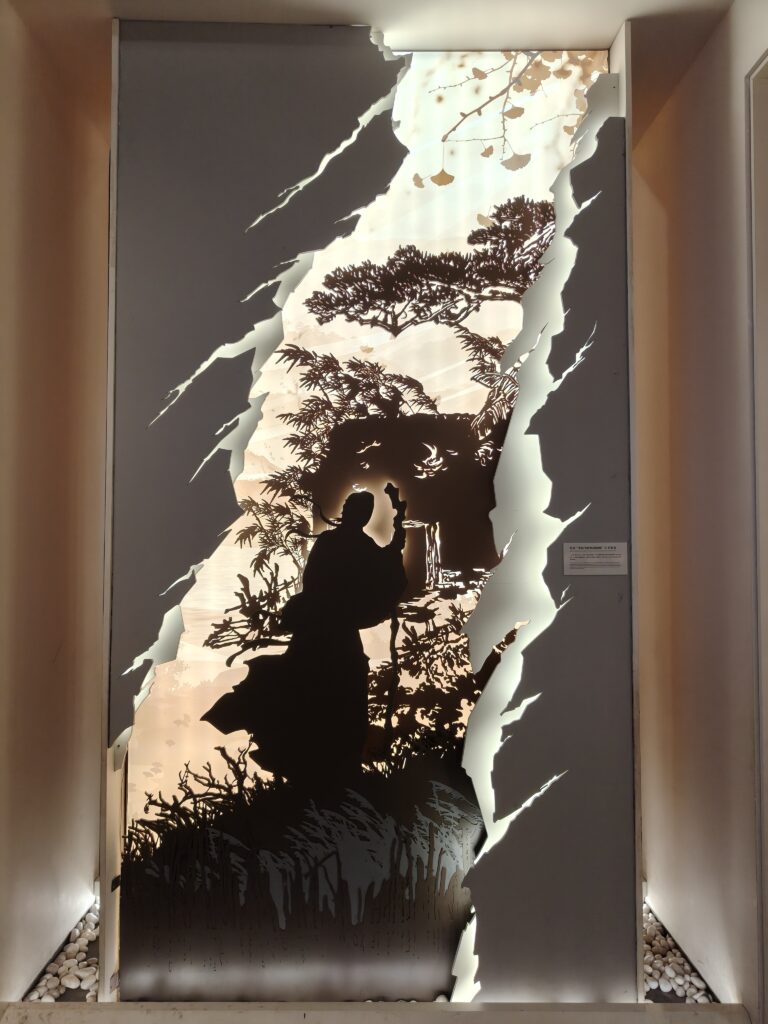
On one wall in one of the gardens, a collection of calligraphy, each on a different wooden cut-out showed Du Fu’s poems. The calligraphy was done by different calligraphers over the years since Du Fu died, and even though I couldn’t remember everything Clara had taught us about calligraphy, and even though I didn’t have time to read all of the English descriptions of the poems, I really enjoyed looking at the beautiful words. By the time we left Du Fu’s house, I was hot and tired, but I was also so glad that I had come.
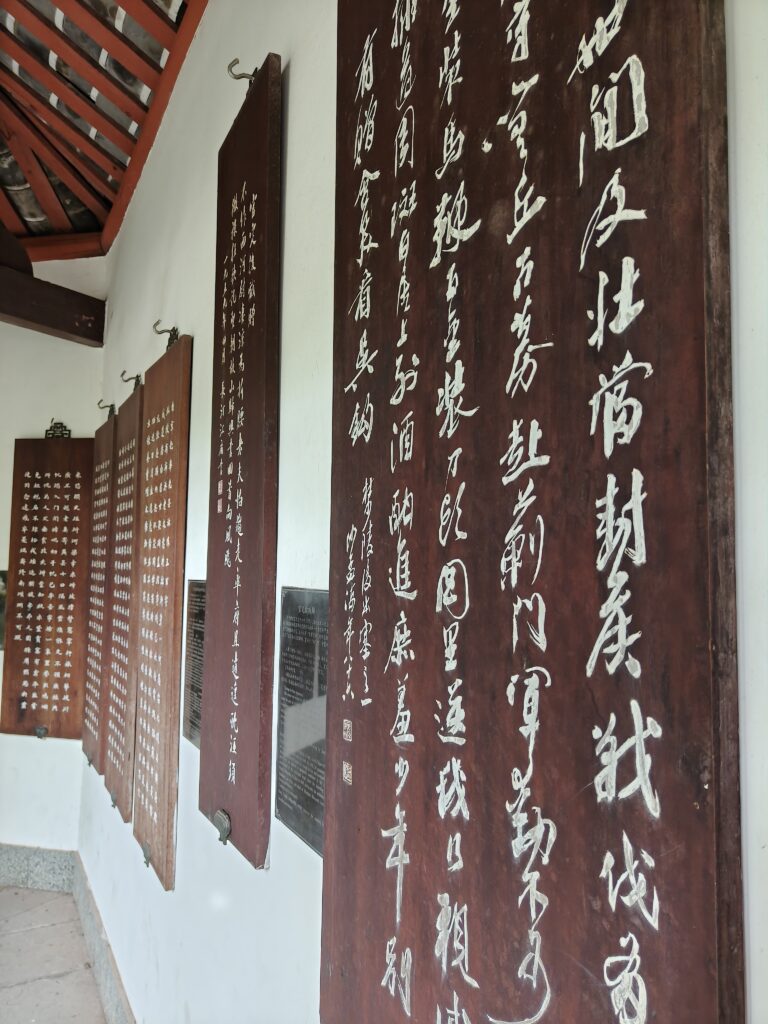
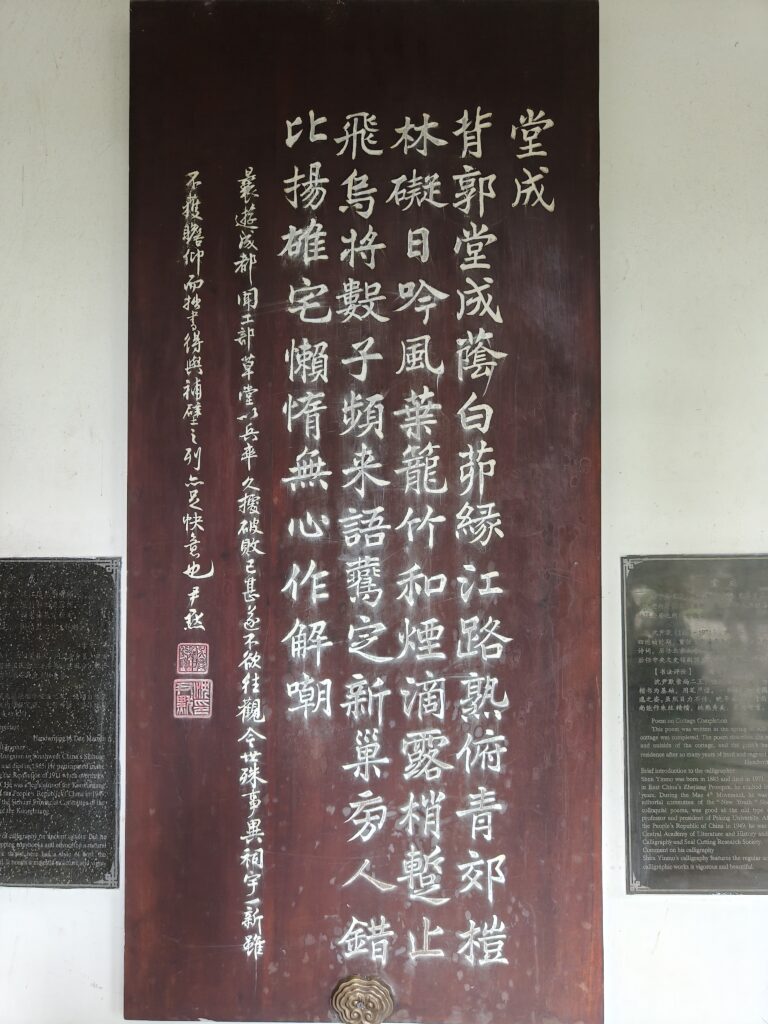
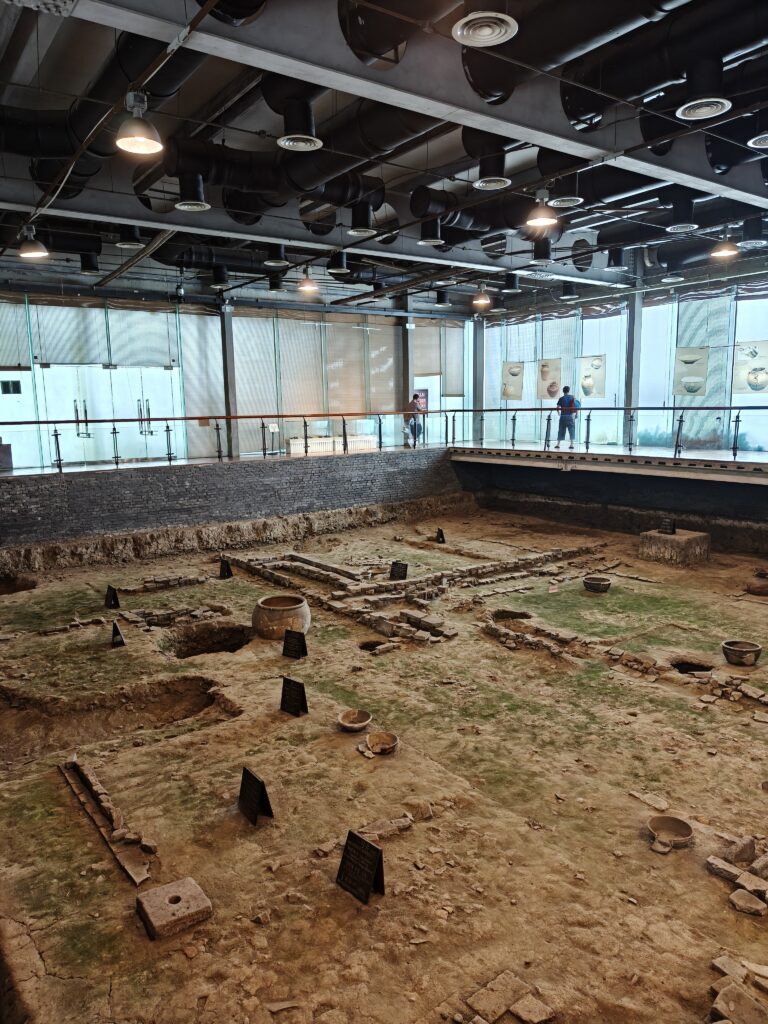
After some delicious Sichuanese food for lunch, Jaye and I picked up our suitcases and headed to the train station. I was very glad that Jaye did so much to prepare for this trip. We had booked our tickets weeks ahead of time, and it was good we did because they were all sold out not long after the ticket booking was possible. Our next destination was in the mountains in the north of Sichuan, heading to a lake called 九寨沟 (Jiu zhai gou; literally “nine village ravine”). I’d heard about this lake for years, and I had wanted to go for a long time. I heard that it was partially destroyed by an earthquake once, and I also heard that the lake was in danger of being destroyed by the changing earth. I’m not sure how true these things were, but I felt a sense of urgency about going to visit this lake as soon as possible. I’m so glad I did, but let’s not get ahead of ourselves. First, we had to get there.
Getting to Jiu Zhai Gou was not an easy task. First we took the bullet train for about two hours. The bullet train was finished about a year ago, and it has made the trip to Jiu Zhai Gou much easier but also much more accessible. Lots and lots of people go there, especially during the summer. Everyone that I talked to said to expect lots of people. Jaye had also done quite a bit of research and we were both expecting huge crowds. But as my friend in Chengdu said, “There will be tons of people, but you still have to go.” It’s that beautiful.
We got off the train, and even though there were tons of people, I was so thankful that the heat of Chengdu was behind us. We were in the mountains, and that crisp mountain air was extremely welcome. I’m not sure how these mountains were different from when Wendy and I had visited the mountains in Chongqing, but something about them reminded me of the Rocky Mountains, and that hit a special happy place in my heart. I do so love the mountains.
We found a taxi driver who already had two girls who were going in the same direction that we were. I let Jaye deal with all of that, and thankfully she had done the research so she knew what to expect for prices. We paid about 60 kuai per person for the two hour drive to our hotel which was near the lake. I ended up in the front of the car, and I loved looking at the mountains.
Our driver was a local guy who drove people back and forth to the train station all day. He said he made the drive three or four times (round trip) every day. That was a lot of driving every day! And he did seem to know that road quite well. I was a bit terrified actually, especially at the way that he passed people. He could not abide delays, and he was in no mood to wait for a broken line to pass a slower car or truck in front of us. I was especially surprised when he even passed people in the tunnels. I prayed a lot, and thankfully God protected us! However, the most terrifying part of that ordeal was realizing that in just a few days, I would be driving around Western Sichuan, and seeing how the locals drove, I was less sure that the trip would be very safe.
As we got closer to the lake, we ran into quite a bit of traffic. That’s why the drive was two hours. Usually it was probably closer to one hour, but with the traffic, it was closer to two hours. Our driver didn’t tolerate any traffic, however, and we reached our destination in about an hour and a half. I was just glad we didn’t have any problems!
We found our hotel, and I was amazed! It was a Tibetan-style building made of wood, and it was beautiful. I loved the wood and all of the colors on the mats and cushions in the room. For dinner, we went to a nearby restaurant that was also owned by the hotel because they said we could have a discount. The local specialty was yak meat, and I really enjoyed that. We had a yak meat and potato dish, and the potatoes were cooked to perfection. I didn’t realize that I loved potatoes so much, but Jaye kept teasing me about it. Her husband is American, and he also loved potatoes, and when I kept recommending the potato dishes when she asked me what I wanted, I realized that, yep, I also love some good potatoes (boil ’em, mash ‘em, stick ‘em in a stew—so many good ways to eat tators!).
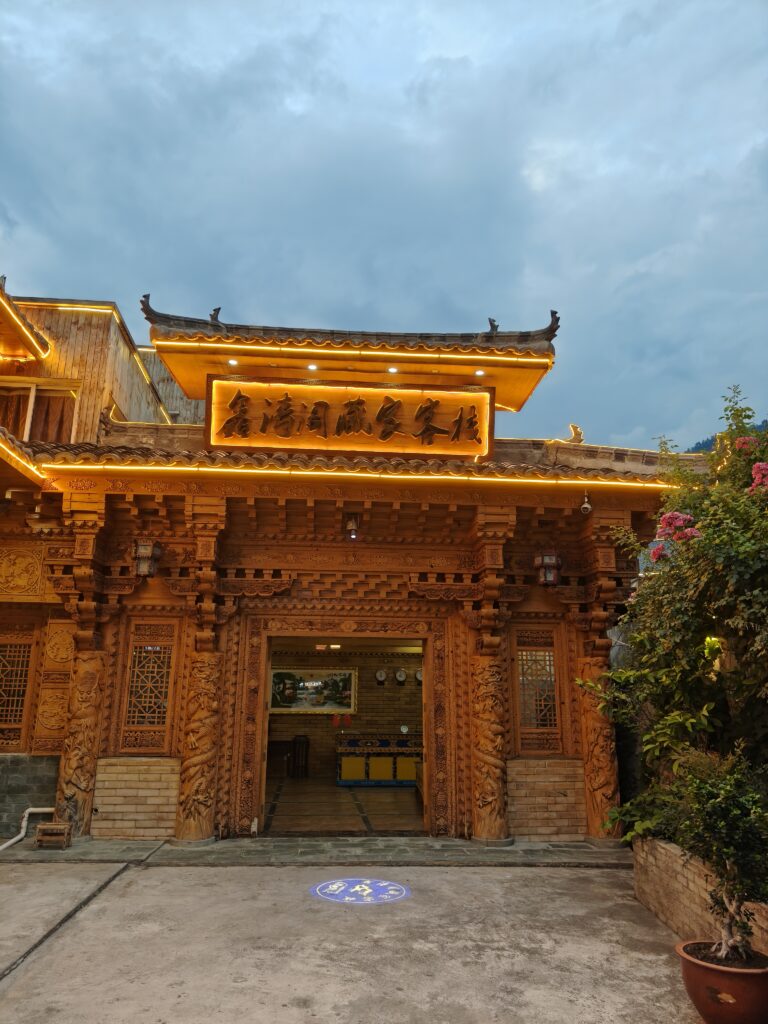
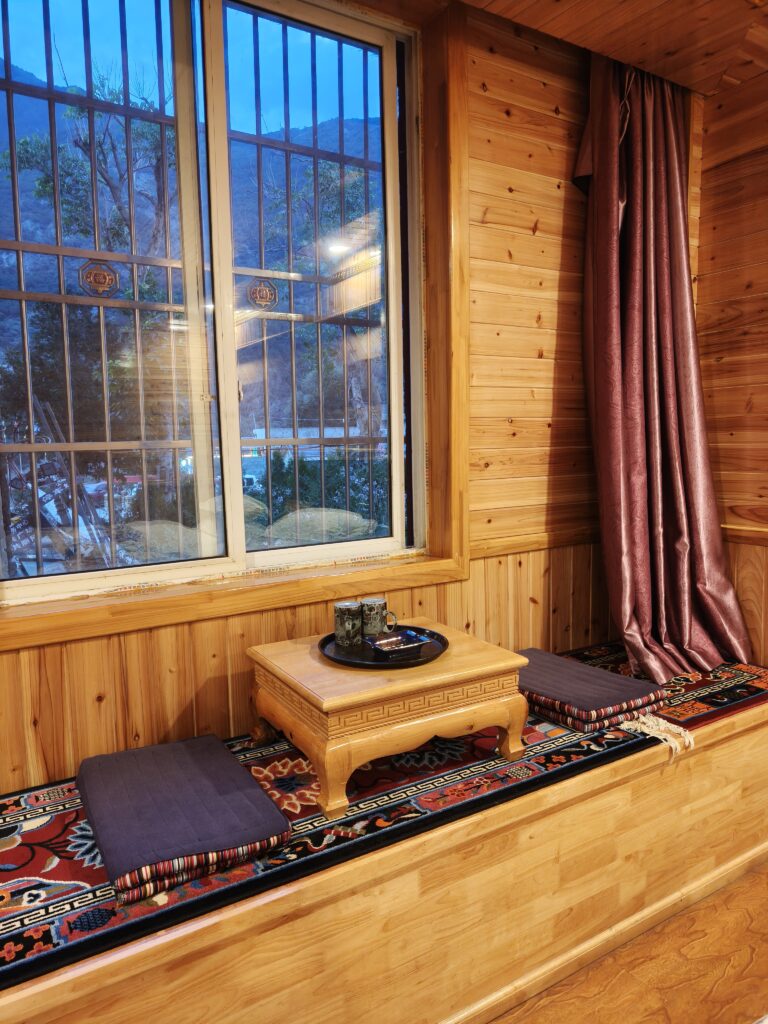
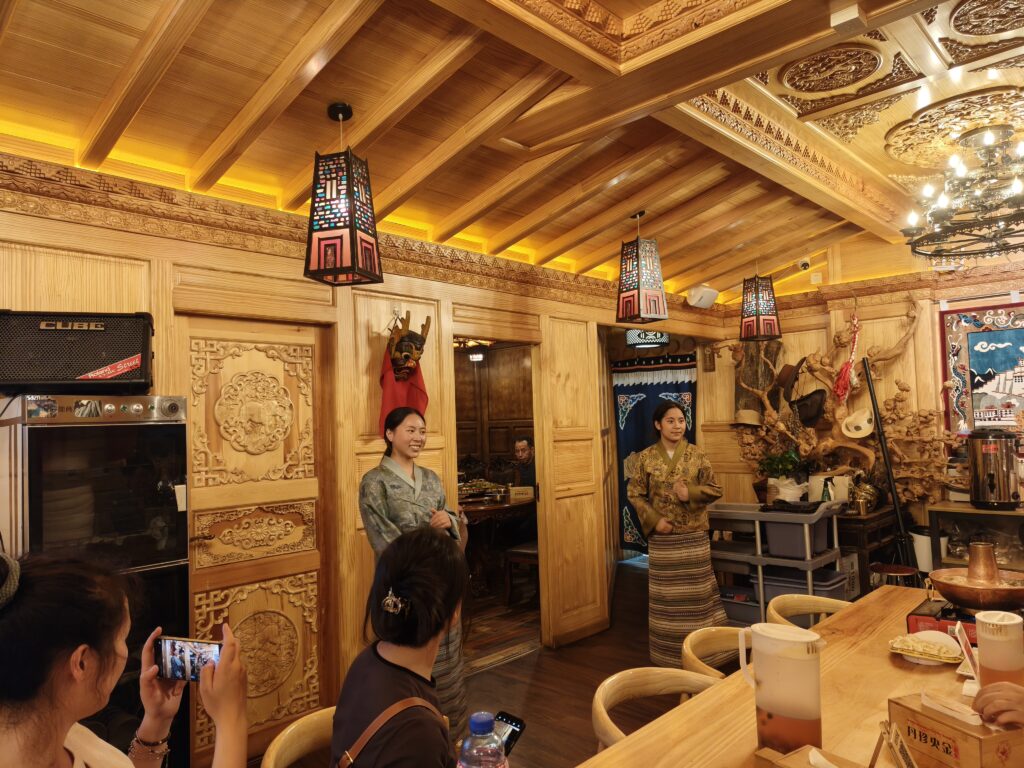
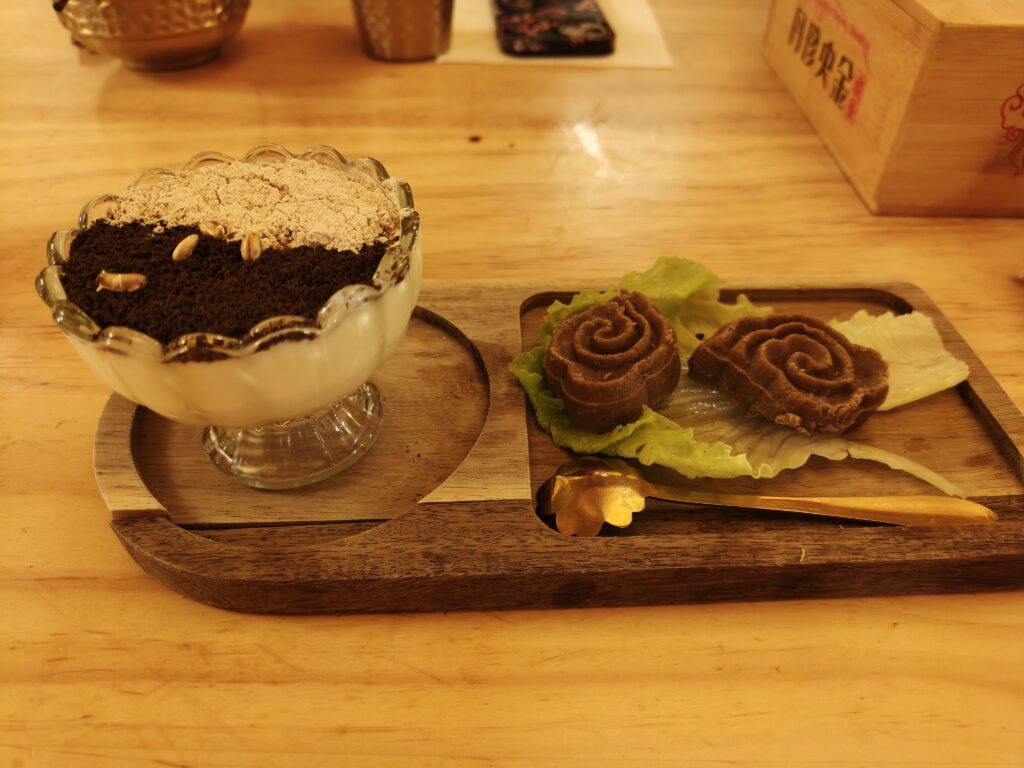
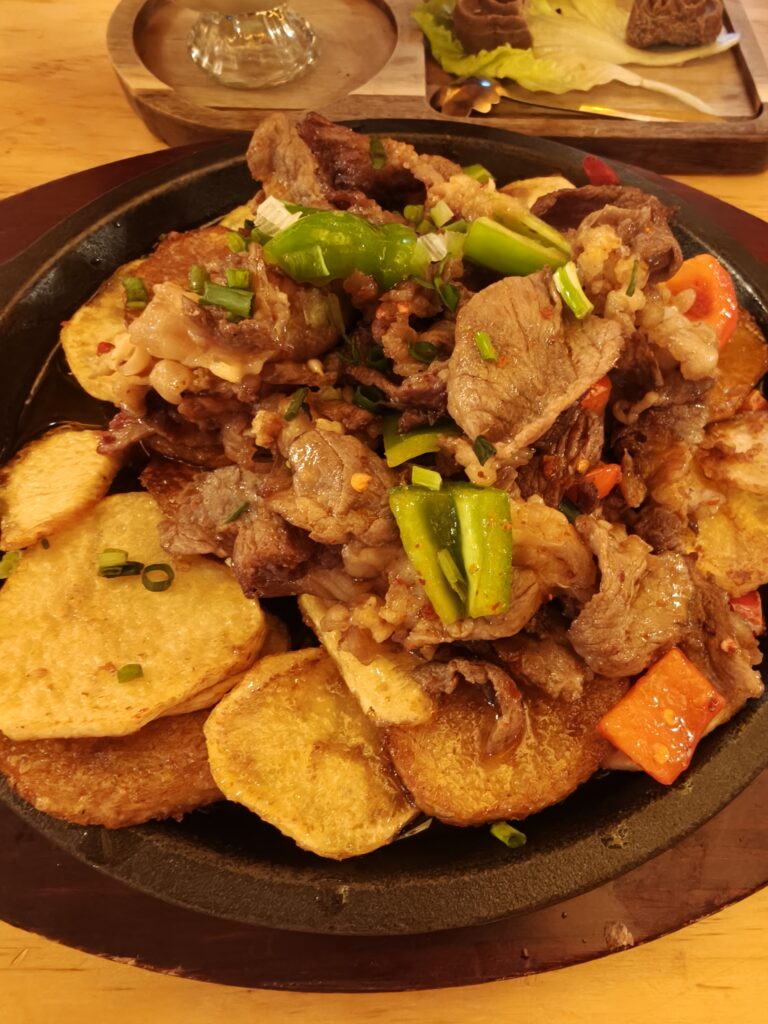
There wasn’t much to do in the tiny village on a hill where our hotel was, so after dinner (that also came with a show although when the Tibetan waiter, who was only 18, tried to sing, the equipment kept breaking, so he gave up. Too bad because he had a nice voice!) we headed back to our hotel. The next morning was going to be an early one because everyone said that the earlier we could get to the lake, the better it would be as far as crowds go. I’m looking forward to telling you all about the lake in my post next week!

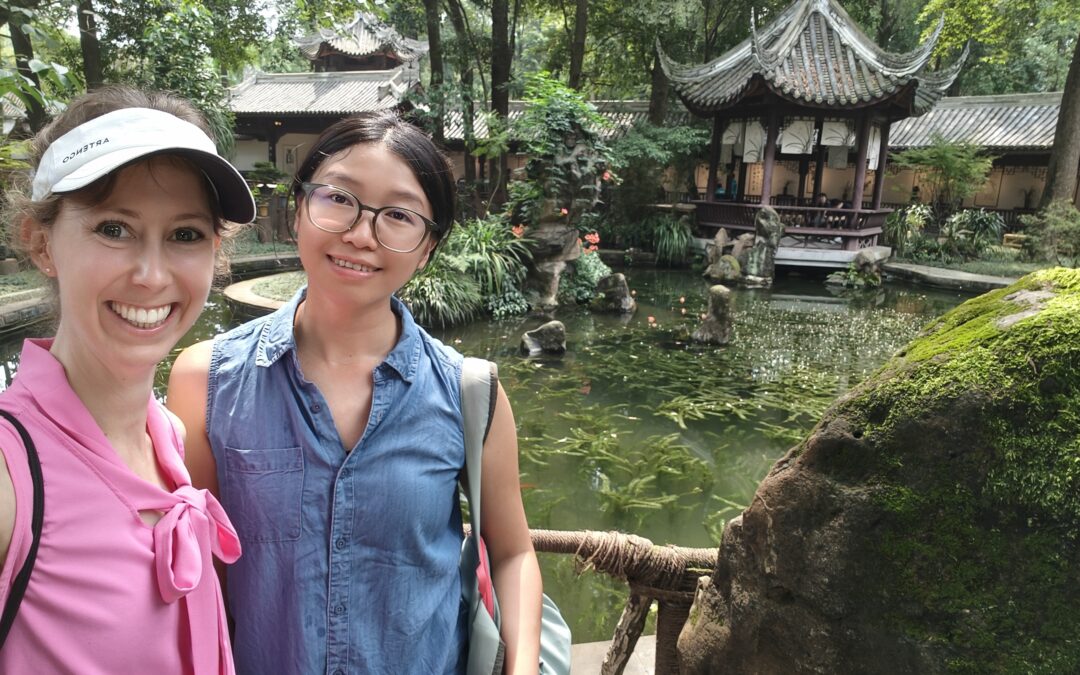
Love reading your blog! So glad we had this adventure together!
So glad you enjoyed it! Yes, it was a wonderful adventure, and I can’t wait for the next one!!!
❤️❤️❤️
人生多艰,快乐一天是一天!
没错,所以我们可以享受每一天,感恩每一天的快乐!
Magnificent goods from you, man. I have understand your stuff previous to and you’re just extremely great. I actually like what you’ve acquired here, certainly like what you are saying and the way in which you say it. You make it enjoyable and you still take care of to keep it wise. I cant wait to read much more from you. This is actually a tremendous web site.
Thank you!